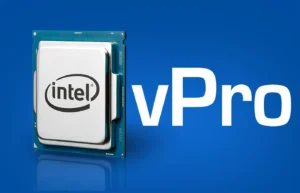The SEO landscape is changing faster than ever. In 2025, enterprises must navigate an ecosystem driven by AI-powered search, hyper-personalization, and evolving algorithms. With over 8.5 billion Google searches per day , large-scale businesses must implement strategic SEO frameworks that go beyond traditional keyword targeting.
Gone are the days when SEO was just about backlinks and on-page optimization. Today, enterprise SEO requires a data-driven, AI-integrated, and automation-focused approach to scale efficiently.
This article dives into cutting-edge strategies that will shape enterprise SEO success in 2025.
Key Strategies for Large-Scale SEO Success in 2025
1. AI-Driven SEO Automation
Artificial intelligence is revolutionizing SEO for enterprise companies. In 2025, AI-powered tools help businesses handle massive volumes of content, optimize for intent-based searches, and adapt to algorithm changes in real time. Key applications include:
- Automated Content Optimization: AI tools like Surfer SEO and Clearscope analyze top-ranking pages and provide content recommendations.
- Predictive Search Intent Analysis: AI predicts user intent before they even complete a query, improving content relevance.
2. First-Party Data & Privacy-First SEO
With the phasing out of third-party cookies and stricter data privacy regulations (like the GDPR and CCPA), enterprises must leverage first-party data for personalized SEO strategies.
How to Adapt:
- Use CRM Data to build highly targeted content strategies.
- Implement Server-Side Tracking to collect data while complying with privacy laws.
- Leverage Consent-Based Personalization to deliver customized experiences without breaching privacy regulations.
3. Semantic SEO & Topic Clusters
Google’s NLP (Natural Language Processing) improvements, powered by BERT and MUM algorithms, mean enterprises must shift from single keywords to semantic optimization. This involves:
- Building Topic Clusters: Creating pillar pages that interlink with related subtopics.
- Entity-Based SEO: Optimizing for entities rather than just keywords to improve search relevance.
- Structured Data Implementation: Using Schema Markup to enhance search result visibility.
4. Automation for Enterprise-Level Technical SEO
Managing SEO for large-scale websites requires technical efficiency. Automation tools streamline the process:
- AI-Powered Log File Analysis: Helps detect crawl budget waste.
- Automated Internal Linking: Uses machine learning to suggest relevant interlinks.
- Dynamic Rendering & JavaScript SEO: Ensures better indexing of complex JavaScript-based websites.
5. Core Web Vitals Optimization
Google’s Page Experience update has made Core Web Vitals a ranking factor. Enterprises must optimize:
- Largest Contentful Paint (LCP): Ensure pages load under 2.5 seconds.
- First Input Delay (FID): Reduce delays in interactivity.
- Cumulative Layout Shift (CLS): Prevent unexpected content shifts.
Websites that meet Core Web Vitals criteria see a 24% lower bounce rate
6. Programmatic SEO for Scale
Enterprises managing millions of landing pages can benefit from programmatic SEO to rank for thousands of search queries automatically.
Implementation Steps:
- Automated Content Generation using AI-powered tools.
- Scalable Internal Linking Structures to boost page authority.
- Dynamic Metadata Optimization for thousands of pages.
7. Omnichannel SEO Integration
SEO is no longer confined to Google. Enterprises must optimize for:
- YouTube SEO: Video optimization for search intent.
- Ecommerce SEO (Amazon, Shopify, etc.).
- App Store Optimization (ASO): Enhancing mobile app discoverability.
8. Local & Multilingual SEO at Scale
For global enterprises, local and multilingual SEO remain key drivers of traffic.
- Geo-Targeting: Using hreflang tags to ensure the right content is served.
- AI-Generated Localized Content: NLP-powered tools create region-specific pages.
- Google Business Profile Optimization: Vital for businesses with physical locations.
Measuring Enterprise SEO Success in 2025
Large-scale SEO success depends on measuring the right KPIs.
Essential Metrics to Track:
- Organic Traffic Growth – Track year-over-year improvements.
- Keyword Share of Voice (SOV) – Measure how much of the SERP is occupied by your brand.
- Crawl Efficiency – Use log files to monitor crawl budget usage.
- Conversion Rate from Organic Search – Ensure SEO efforts drive real business impact.
- Zero-Click Searches Performance – Monitor brand visibility in featured snippets and knowledge panels.
Conclusion: Future-Proofing Your Enterprise SEO Strategy
Enterprise SEO in 2025 is about scalability, automation, and adaptability. The digital landscape is evolving rapidly, and businesses that leverage AI-driven strategies, focus on first-party data, and optimize for Core Web Vitals will lead the pack.
By integrating semantic search, programmatic SEO, and omnichannel optimization, enterprises can dominate search rankings and drive sustainable growth in an increasingly competitive market.
Final Takeaway
- AI-driven automation, semantic SEO, and Core Web Vitals optimization are non-negotiables.
- Enterprise brands must invest in first-party data strategies amid privacy regulations.
- Measuring success through advanced analytics ensures long-term SEO dominance.






